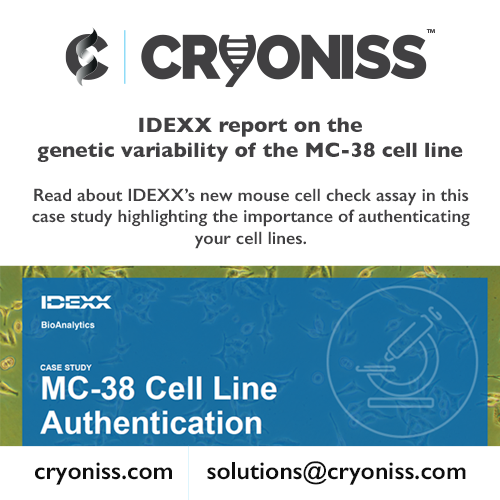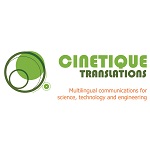IDEXX report on the genetic variability of the MC-38 cell line

IDEXX Bioanalytics report on the application of their 19 loci Short Tandem Repeat (STR) assay to screen 3 different cell banks of MC-38 submitted by a single company. Their analysis shows that whilst their customer considered all three lines to be MC-38, they have actually had 3 genetically distinct cell lines. The new cell check mouse assay was able to determine that were are 9 of the 19 markers that are discordant between the 3 cells.
Routine authentication of cell lines is a basic quality control step for researchers working on cell lines in culture, to ensure their reagents are of the highest quality. Cell lines grown continuously in culture can become contaminated, for example with microbes, other cell lines or can succumb to genetic drift, which can lead to different phenotypes impacting data generated in end user assays.
Mouse cell lines are widely used pre-clinical models in the industry for basic and genetic research. It is for this reason, the National Institute of Standards and Technology (NIST) developed the Mouse Cell Line Consortium, together with the American Type Culture Collection (ATCC) to develop a recognised standard for mouse cell line authentication, alongside a widely accessible database.
Below IDEXX Bioanalytics report on the success of this venture, with the application of their 19 loci Short Tandem Repeat (STR) assay to screen 3 different cell banks of MC-38 submitted by a single company. Their analysis shows that whilst their customer considered all three lines to be MC-38, they have actually had 3 genetically distinct cell lines. The new cell check mouse assay was able to determine that were are 9 of the 19 markers that are discordant between the 3 cells.
The murine colon adenocarcinoma cell line, MC-38, is a widely used syngeneic mouse model, enabling the study of how cancer therapies work in the presence of a functional immune system. It is imperative that these models are genetically correct, and their subsequent responses to known immune checkpoint inhibitors are well characterised.
This simple check requiring just one cryovial of cells has potentially saved the client from years of irreproducible research for themselves and collaborators.
Check out our quality control testing services for more information at solution@cryoniss.com.

























